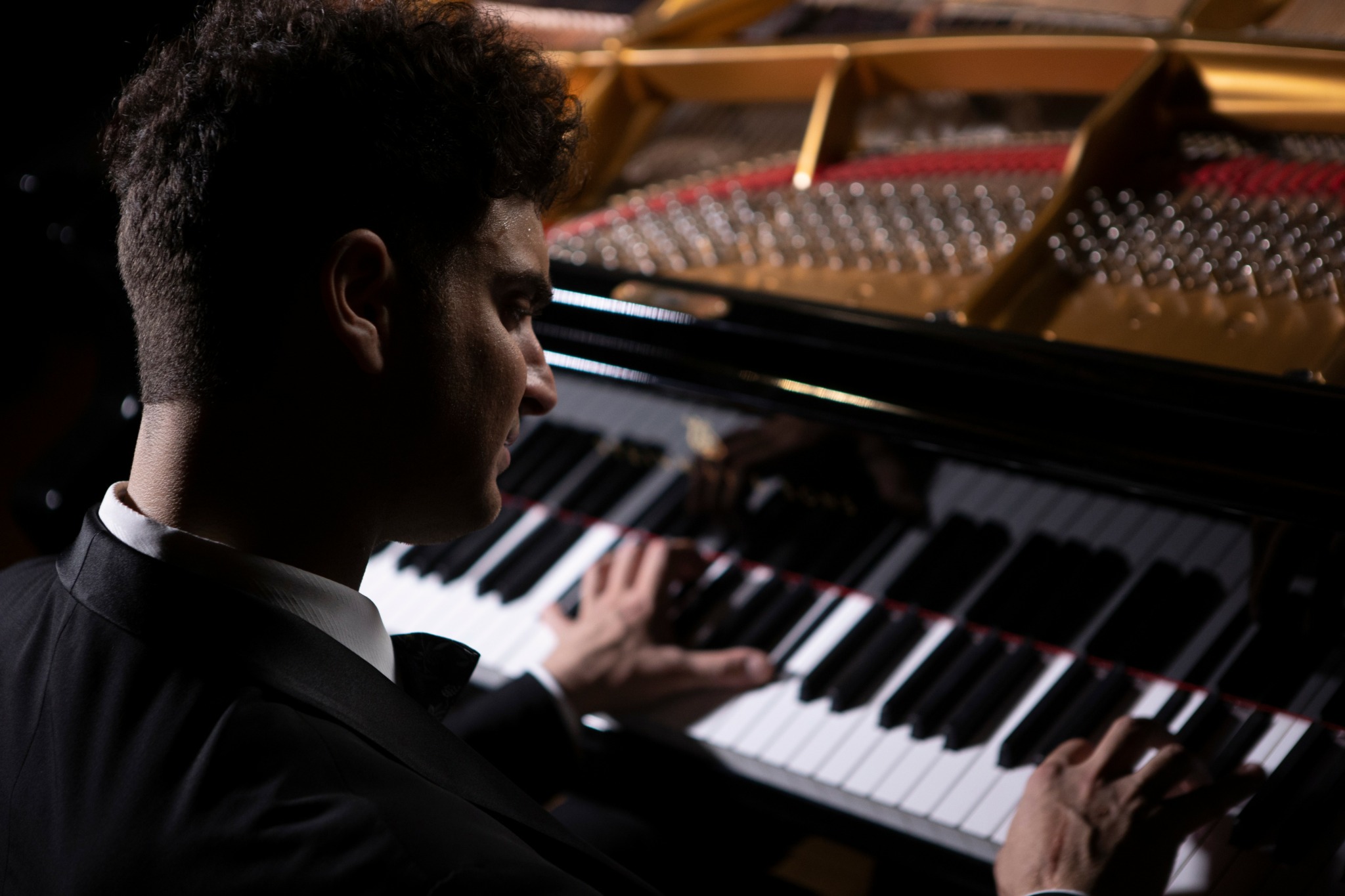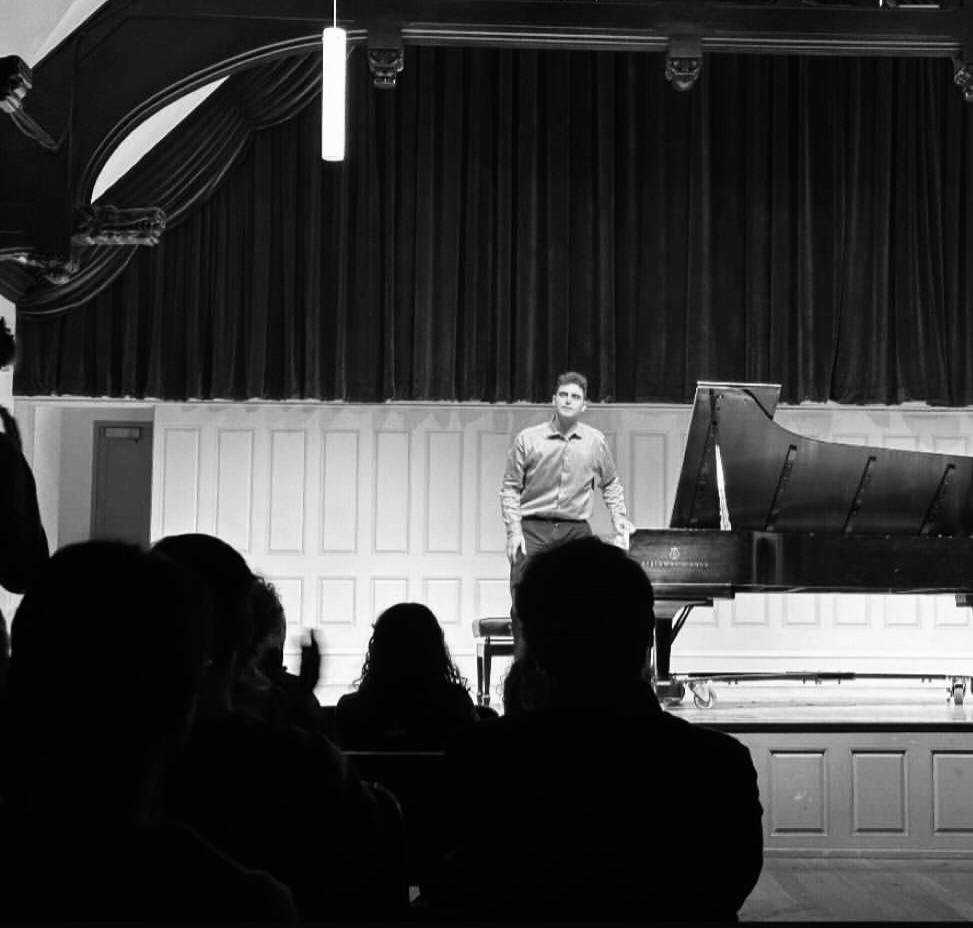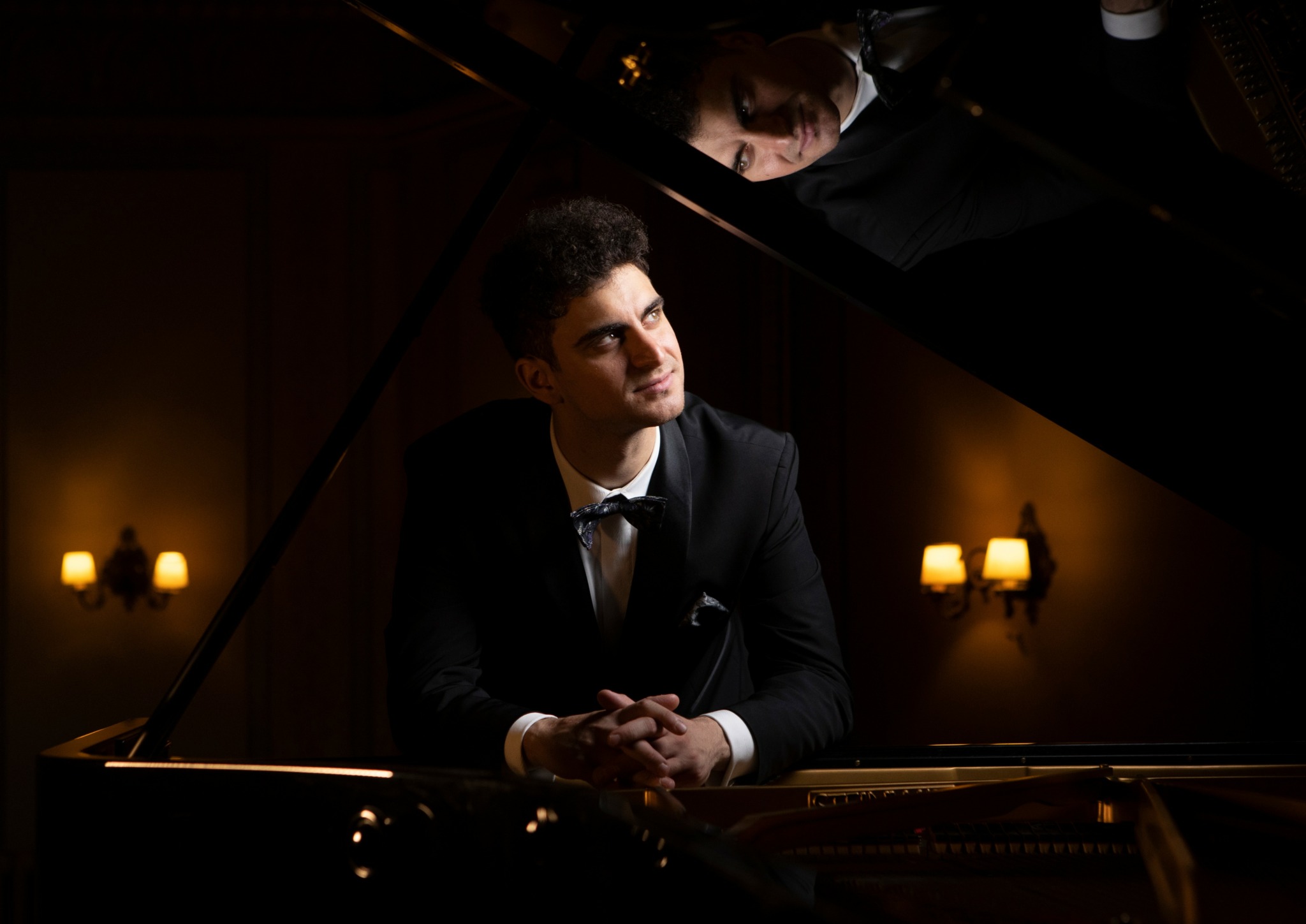Alright – so today we’ve got the honor of introducing you to Alexandros Kyriakopoulos. We think you’ll enjoy our conversation, we’ve shared it below.
Alright, Alexandros thanks for taking the time to share your stories and insights with us today. We’d love to hear about when you first realized that you wanted to pursue a creative path professionally.
“I was about to turn sixteen when my life took a dramatic turn in my musical life. My piano teacher at the time passed away suddenly from a lung disease, leaving me heartbroken and uncertain about my musical future. Just a couple of months later, fate introduced me to a new mentor, Dimitri Toufexis, a Juilliard graduate whose teaching transformed everything I thought I knew about music. His lessons weren’t just about notes or technique—they were about message, intention, and emotion. Suddenly, the piano became more than an instrument; it became a voice for meaning, imagination, and storytelling. That shift was the moment I realized this wasn’t just something I loved doing; but the path I was destined to follow as my life’s work.”

Alexandros, before we move on to more of these sorts of questions, can you take some time to bring our readers up to speed on you and what you do?
I am Alexandros Kyriakopoulos, a Greek-Australian pianist based in Boston. I recently graduated with a Bachelor of Music in Piano Performance from the Boston Conservatory at Berklee, but my journey began at the age of five on a small Greek island called Kythera. From those first lessons, I was shaped not only by rigorous training but also by mentors and parents who showed me that music is more than sound. It is imagination, message, and connection.
Today, my work is multifaceted. I perform internationally at festivals and venues across Europe, the United States, Australia, and Latin America — from Italy’s Virtuoso & Belcanto Festival and the Accademia Chigiana in Siena, to Spain’s Gijon Festival, to recitals in Massachusetts, New York, Connecticut, and Greece. These experiences have given me the chance to share music with diverse audiences and to collaborate with remarkable artists, chamber musicians, and ballet companies.
At the same time, I am deeply committed to teaching. I work with both children and adults, from absolute beginners to advanced pianists, and I strive to make the piano a source of joy and discovery for every student. My philosophy is that learning the piano is not simply about mastering technique, but about understanding the instrument as a mirror of human expression. I adapt to each student’s needs and my goal is to help them fall in love with the instrument, its purpose, and its magic — to truly live it in their own way.
What sets me apart is this unique combination: I am not only a performing artist but also an educator and entrepreneur with a vision for the future of music learning and music sharing. I am proud that my work juggles between tradition and innovation — from performing Schubert, Chopin, or Prokofiev on stage, to mentoring young students in Boston, to developing tools that reimagine how people everywhere can experience the piano.
If there is one message I want readers, students, and audiences to carry with them, it is that music is never just notes. It is imagination, human connection, and transformation. That conviction is the core of my artistry, my teaching, and my brand. The mission is simple: to innovate, feel and live though music.
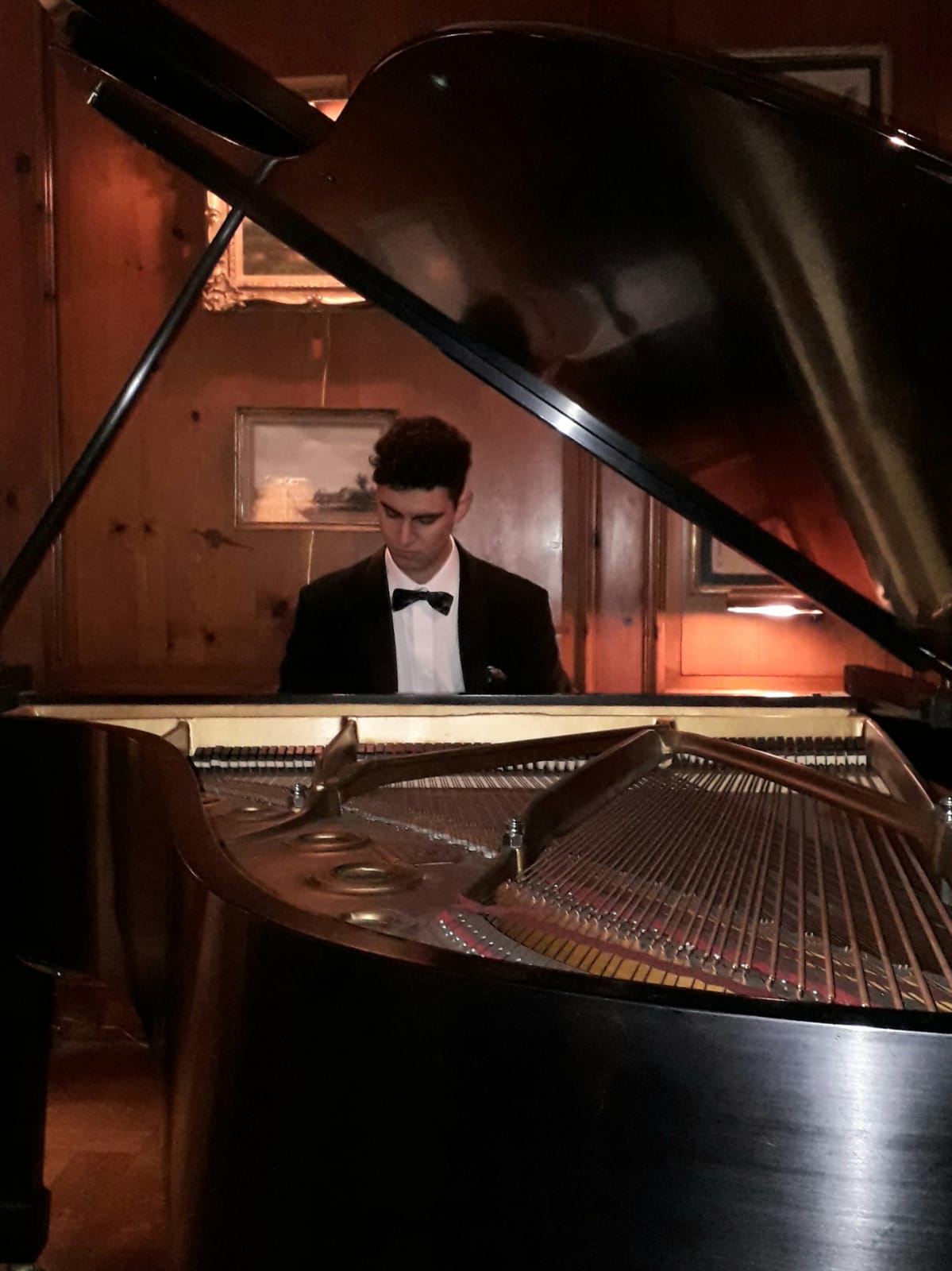
What do you think is the goal or mission that drives your creative journey?
Yes — my creative journey is driven by a mission that is both personal and outward-looking. For me, the joy of music lies in its cycle: you receive it, you live it within yourself, and then you give it back to society through your own lense. It is a golden triangle, just like the one between performer, composer, and listener — each completing the other.
My goal is to learn as much as possible through every means available, to understand how music has been engraved into the world’s communities, and to explore how it can evolve in the decades to come. We are the new blood that will shape how music is lived in the next century, and I see it as both a responsibility and a privilege to be part of that transformation.
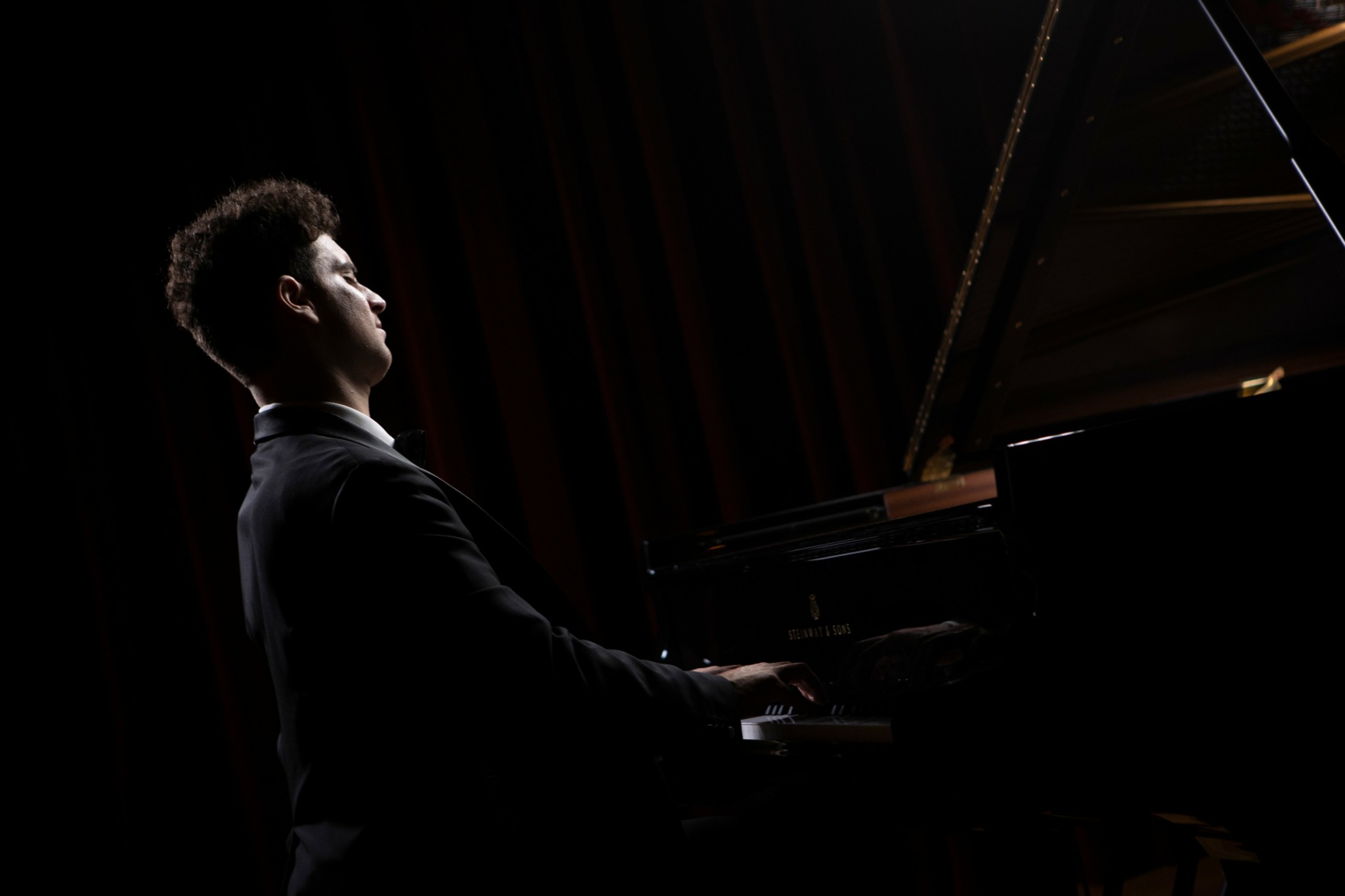
In your view, what can society to do to best support artists, creatives and a thriving creative ecosystem?
A thriving creative ecosystem doesn’t happen by accident — it is the result of conscious choices. Society must decide that art is not decoration, but infrastructure: as vital as science, technology, or medicine. To truly support artists, we must move beyond applauding finished performances and invest in the processes that make them possible — education, research, experimentation, and time.
Support means rethinking how artists are woven into everyday life. Instead of treating creativity as something separate from society, we need to integrate it into schools, workplaces, and public dialogue. Imagine cities where artists sit alongside scientists, entrepreneurs, and policymakers — not as guests, but as equals shaping decisions and carving critical thinkers. That is how a culture sustains itself: by making creativity part of its daily bloodstream.
Contact Info:
- Instagram: alexandros_kyriakopouloss
- Facebook: Alexandros Kyriakopoulos
- Linkedin: Alexandros Kyriakopoulos
- Youtube: Alexandros Kyriakopoulos
